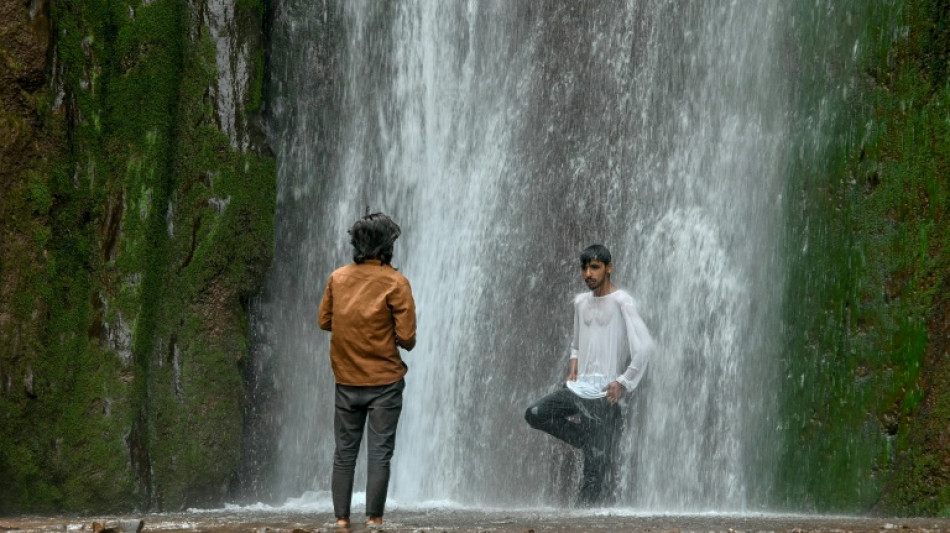
-
 US swim star Ledecky smashes her longstanding 800m freestyle world record
US swim star Ledecky smashes her longstanding 800m freestyle world record
-
Antonelli's teenage pace impresses Verstappen

-
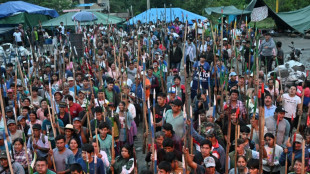 From stronghold guarded by backers, Bolivia ex-leader plots return
From stronghold guarded by backers, Bolivia ex-leader plots return
-
Barca stay on Liga title track with Valladolid comeback

-
 Israel calls up tens of thousands of reservists for Gaza offensive
Israel calls up tens of thousands of reservists for Gaza offensive
-
Verstappen takes pole position for Miami Grand Prix

-
 Williams beats Trump to set up World Snooker final with Zhao
Williams beats Trump to set up World Snooker final with Zhao
-
Warren Buffett to retire from Berkshire Hathaway by year's end

-
 Barca battle back at Valladolid to preserve Liga title charge
Barca battle back at Valladolid to preserve Liga title charge
-
'Like a dream' says dominant Sabalenka after third Madrid title

-
 Napoli move step closer to Serie A crown after win at fiery Lecce
Napoli move step closer to Serie A crown after win at fiery Lecce
-
Williams beats Trump to set up World Snooker final with Zhao Xintong

-
 Eurovision limbers up with over-60s disco
Eurovision limbers up with over-60s disco
-
'Surreal' Freeman hat-trick stuns Leinster to take Northampton into Champions Cup final

-
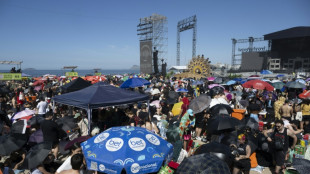 Huge crowds head to Copacabana for free Lady Gaga concert
Huge crowds head to Copacabana for free Lady Gaga concert
-
Warren Buffett: billionaire investor with simple tastes
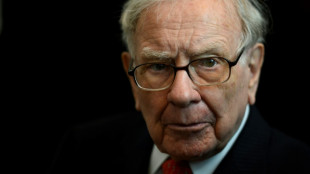
-
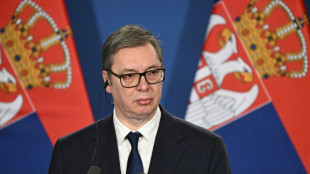 Serbian president out of hospital after cutting short US trip
Serbian president out of hospital after cutting short US trip
-
Arsenal rocked by Bournemouth, Villa boost top five bid

-
 Freeman hat-trick stuns Leinster to take Northampton into Champions Cup final
Freeman hat-trick stuns Leinster to take Northampton into Champions Cup final
-
Warren Buffett says will retire from Berkshire Hathaway by year's end

-
 Al Ahli beat Kawasaki Frontale to win Asian Champions League
Al Ahli beat Kawasaki Frontale to win Asian Champions League
-
Shepherd, Dayal edge Bengaluru past Chennai in IPL thriller

-
 Sabalenka beats Gauff to win third Madrid Open crown
Sabalenka beats Gauff to win third Madrid Open crown
-
Arsenal suffer Bournemouth defeat ahead of PSG showdown

-
 Napoli six clear in Serie A after win at fiery Lecce
Napoli six clear in Serie A after win at fiery Lecce
-
Van Nistelrooy glad as Leicester end goal drought against sorry Saints

-
 Meta fighting Nigerian fines, warns could shut Facebook, Instagram
Meta fighting Nigerian fines, warns could shut Facebook, Instagram
-
Hamas armed wing releases video of apparently injured Israeli hostage

-
 Norris wins wild and wet Miami GP sprint race
Norris wins wild and wet Miami GP sprint race
-
Gabon ex-junta chief Oligui sworn in after election win

-
 Singapore ruling party wins election in landslide
Singapore ruling party wins election in landslide
-
Eurovision warms up with over-60s disco

-
 Russell helps Bath beat Edinburgh in Challenge Cup semi-final
Russell helps Bath beat Edinburgh in Challenge Cup semi-final
-
Second-string PSG beaten by Strasbourg before Arsenal return leg

-
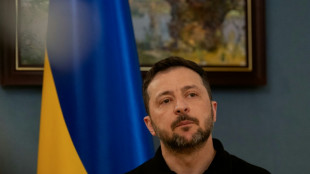 Zelensky says won't play Putin 'games' with short truce
Zelensky says won't play Putin 'games' with short truce
-
Norris wins Miami GP sprint race

-
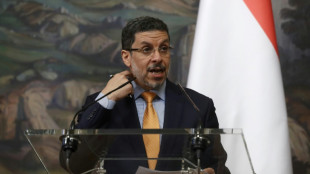 PM of Yemen government announces resignation
PM of Yemen government announces resignation
-
South Africa bowler Rabada serving ban for positive drug test

-
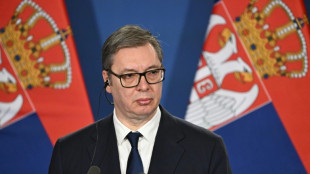 Serbian president stable in hospital after cutting short US trip
Serbian president stable in hospital after cutting short US trip
-
UN envoy urges Israel to halt Syria attacks 'at once'
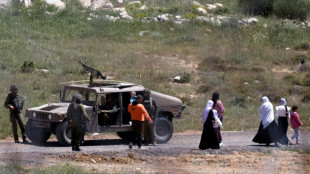
-
 Villa boost top five bid, Southampton beaten at Leicester
Villa boost top five bid, Southampton beaten at Leicester
-
Leipzig put Bayern and Kane's title party on ice

-
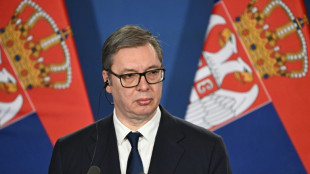 Serbian president hospitalised after cutting short US trip
Serbian president hospitalised after cutting short US trip
-
Buick and Appleby rule again in English 2000 Guineas

-
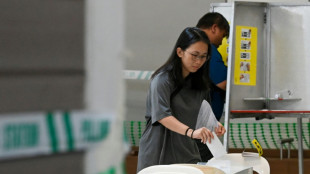 Singapore ruling party headed for clear victory in test for new PM
Singapore ruling party headed for clear victory in test for new PM
-
Martinez climbs into Tour de Romandie lead with penultimate stage win

-
 O'Sullivan backs Zhao Xintong to become snooker 'megastar'
O'Sullivan backs Zhao Xintong to become snooker 'megastar'
-
Simbine wins 100m in photo finish thriller as Duplantis dominates

-
 Atletico held at Alaves in dry Liga draw
Atletico held at Alaves in dry Liga draw
-
Cardinals meet ahead of vote for new pope
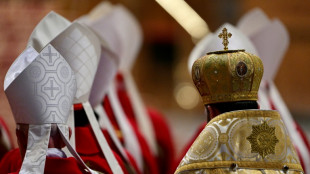

India-Pakistan tensions hit tourism in Kashmiri valley
Hotels are empty and roads deserted at the start of what is normally peak tourist season amidst the towering peaks and lush valleys of Pakistan's Kashmir valley, as the threat of attack from India looms.
Tensions between the nuclear-armed arch-rivals have soared since India accused Pakistan of backing a shooting that killed 26 civilians on the Indian side of the disputed territory on April 22.
Indian Prime Minister Narendra Modi gave his military “full operational freedom” to respond while Islamabad earlier this week warned they had “credible intelligence” that India was planning imminent strikes.
High season in the cooler climes of the Neelum Valley, the tourist centre of Pakistan administered-Kashmir, begins in May as temperatures around the rest of the country rise.
"It's been a really bad start," said Muhammad Awais, a 22-year-old photographer at a popular picnic spot.
Tourism is the Neelum Valley's lifeline, drawing over 300,000 visitors each year from all over Pakistan, according to the district administration.
Much of the local population depends on roughly 350 guesthouses, which employ thousands of families.
"Our livelihoods depend on tourism, and without it, we suffer," Awais told AFP.
"The way things are unfolding is very slow, and it's affecting our work badly."
This week police and soldiers at army check points barred tourists from entering the valley, allowing only local residents through the checkpoint.
Tourists were instead told to return the main town of Muzaffarabad.
"It’s extremely disappointing that the government did not warn us or advise against visiting," said Saleem Uddin Siddique, who travelled from the capital Islamabad with his family.
"Our hopes are now dashed," the 69-year-old retired accountant said.
- 'We don't want war' -
Islamabad has denied any involvement in last month's attack at Pahalgam and the uneasy neighbours have issued a raft of tit-for-tat punitive diplomatic measures.
The two South Asian nations have exchanged gunfire for nine consecutive nights along the militarised Line of Control, the de-facto border, according to Indian defence sources.
On Saturday, Pakistan's military said it tested a surface-to-surface missile system with a range of 450 kilometres (280 miles) aimed at "ensuring the operational readiness of troops".
International pressure has been piled on both New Delhi and Islamabad to settle their differences through talks.
India and Pakistan, which both claim Muslim-majority Kashmir in full, have fought several wars over the Himalayan territory since the end of British rule in 1947.
On India's heavily fortified border, residents of farming villages along the Chenab river have sent families back from the frontier, recalling the terror of the last major conflict between the rival armies in 1999.
There has been an exodus of tourists on the Indian side of the border too since the attack which targeted Hindu men enjoying the open meadows with their families.
Indian authorities have heavily promoted the region as a holiday destination, both for skiing in winter and to escape the sweltering heat of the summer.
The regional government of Pakistan‑administered Kashmir has ordered religious schools to close and urged residents to stockpile food.
However, some tourists continued to arrive undeterred.
"We don't think the threat of possible war is serious," said Mudasar Maqsood, a 39‑year‑old factory worker from the eastern city of Kasur, over 630 kilometres away, who was blocked along with his friends from entering the valley.
"We should not disrupt our routine life," he added.
Raja Iftikhar Khan, the president of private tourism association, said the situation could become "extremely dire".
"This disruption has been devastating for all those tied to tourism," he said
"We don't want war -- no sensible businessperson ever does".
N.Schaad--VB
